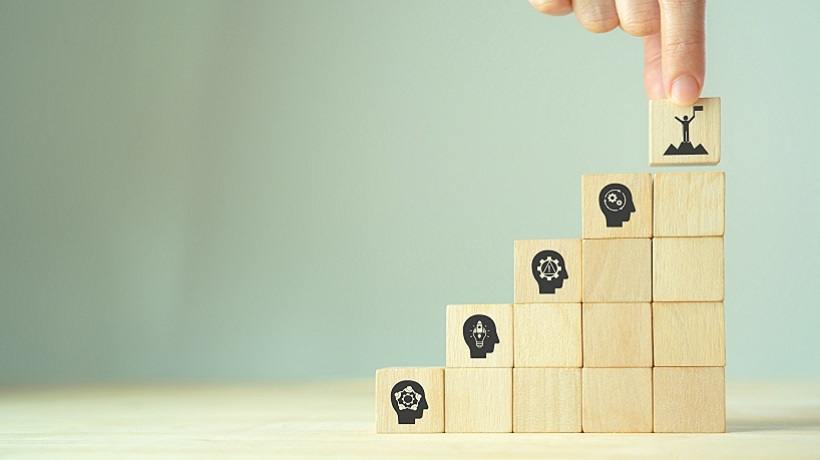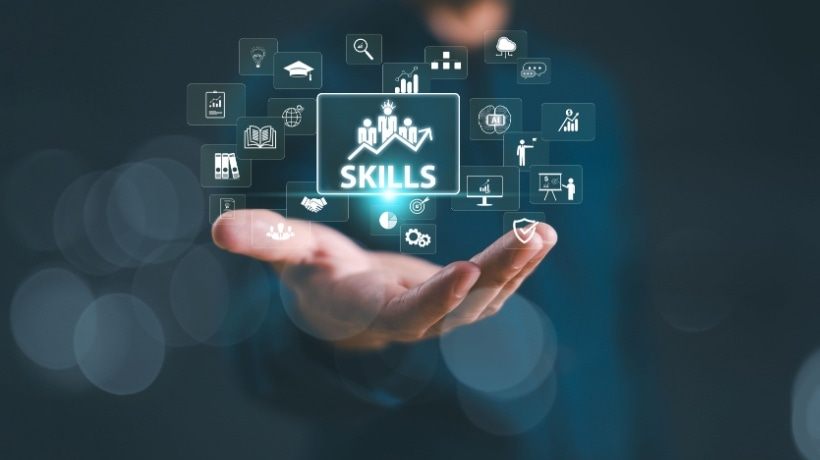Skills Development: A Choice Or A Prerequisite?
Welcome, dear! Skills development is indeed something that’s no more a matter of choice, and it never was. Look at yourself, how far you have come. When you look back and compare yourself with the previous version of you, what difference do you notice? Take a paper and pen, give yourself a break from your routine jobs, and write down the differences you notice, and how efficient you have become in doing certain tasks. All this is what we call "skills development" and "how to develop your skills."
Skills Development Is No More A Matter Of Choice
The human brain is continuously learning and evolving. The more challenges you face the more skilled you become. This gives the idea that skills can be developed by providing our brain with a specific set of training and instructions.
Another question is, why is skills development necessary? The answer is the same as why you teach a child communication. Why do you teach them to walk on two feet while they are crawling on the ground? From a broader perspective, it is all about survival; moreover, better and more efficient survival. In this article, you are going to see skills development from this broader outlook. So get ready!
What Is Skills Development?
Acquiring the ability or capacity through sustained and systematic efforts, in order to carry out complex activities or job functions smoothly and adaptively, is termed skills development. In simple terms, identifying the skills gap and making efforts to improve them is known as skills development.
Although skills development and how to develop your skills is a big topic to cover, it is further divided into three categories; cognitive, technical, and interpersonal skills. Skills development can also be explained as a form of instruction where through repeated and detailed experiences, knowledge is being learned. Honing and improving skills becomes easy when we move forward step by step.
Being job-specific, these abilities can help you shape a better future for yourself, your families, and your communities. Also, in this consistently evolving economy, not having proper skills could have certain negative impacts as well. Here are some mind-blowing facts about skills development:
- As per the U.N. reports, one in five young people are NEET (Not in Employment, Education, or Training) across the world. Three out of four young NEETs are women.
- Almost two out of five youth employees in emerging and developing economies live on less than $3.10 a day.
- The youth population grew by 139 million between 1997–2017, but the youth labor force shrank by 58.7 million.
It is all about survival and making yourself and the coming generation able to survive efficiently. Having an eye on how it started and how it is going can help you in many ways. You can see the adult literacy rates on Wikipedia. You can notice some countries in Asia and Africa have lower literacy rates as compared to Europe and North America.
Types Of Skills And How They Are Different
While there’s no shortage of skills in this world, it becomes confusing for enthusiasts to figure out what skillset they really need. To keep it simple let’s first understand this from a technical perspective. There are three broad categories:
- Cognitive skills
- Technical skills
- Interpersonal skills
1. Cognitive Skills
To understand cognitive skills, we first need to understand what "cognition" is. Cognition has to do with how a person perceives the world and takes action [1]. Cognition is the set of mental processes or certain abilities that are part of nearly every human action while we are awake.
Cognitive skills can be understood as literacy and numeracy. The World Bank describes it as the ability to understand complex ideas, adapt effectively to the environment, learn from experience, and reason. There are eight subcategories of cognitive skills, meaning that you can learn and develop these eight kinds of skills to develop your cognitive skills:
- Sustained attention
- Response inhibition
- Speed of information processing
- Cognitive flexibility
- Multiple simultaneous attention
- Working memory
- Category formation
- Pattern recognition and inductive thinking
Working on your cognitive skills will always be beneficial to you. Not only can you become an active listener but it can also help you find creative solutions to the challenges you face.
2. Technical Skills
Do not be confused by its name. Technical skills are hard skills [2]. These skills are the qualities acquired by using and gaining expertise in performing certain digital and physical tasks.
Hard skills or technical skills are measurable and teachable abilities such as writing, reading, doing math, or using computer programs [2]. Job-specific hard skills are in-demand these days.
3. Interpersonal Skills
Interpersonal skills or socio-emotional skills or self-management skills are referred to as soft skills. It is the ability to navigate interpersonal and socio-emotional situations effectively. In simple terms, soft skills are all about how you do your work, and if you understand emotional intelligence. These skills commonly include leadership, time management, self-control, teamwork, etc.
Interpersonal skills are the behavior and tactics a person uses to interact with others effectively [3]. In one of her articles, Deanna (Lazzaroni) Pate writes about "The Top Skills Companies Need Most in 2020—And How to Learn Them." These are:
- Creativity
- Persuasion
- Collaboration
- Adaptability
- Emotional intelligence
According to LinkedIn Learning data, managers spend 30% more time learning soft skills than the average learner [4].
Ways To Develop Your Skills
Now since you have understood what skills development is and how to develop your skills, it is high time for you to start developing your skills. But the question is, where are you going to begin from? There could be many strategies and steps to start developing your skills but they could be equally confusing at the same time. So you can follow these easy, step-by-step processes to begin your transformation:
1. Identification Of Skill Gaps
The very first stage of developing skills is identifying where you lack them and what skills you really need to learn. People out there sometimes get attracted to what others are learning and keep switching from learning one skill to another. This merely is a waste of resources. Identifying your skill gap and working on skills development and how to develop your skills can not only help you utilize your resources effectively and efficiently, but can also keep you focused on your goal.
2. Start With Core Skills
Having done the identification, divide the required skills into two subcategories, as core skills and secondary skills. Core skills are the main skills that have a direct impact on your goal. Sometimes these skills are also referred to as the "area of expertise." On the other hand, secondary skills have the least direct impact on your goal but still contribute to your success and achievements.
Let’s assume you want to be a motivational speaker. Then your core skills would be public speaking, socio-emotional intelligence, motivating techniques, etc. Also in order for you to stand out in the market, you need to be handy with using computer programs and web applications, social media and content marketing, etc. [5].
3. Find A Mentor
Finding a mentor is always an essential step in gaining knowledge. A professional mentor is somebody who has already experienced all the hardships you are about to face. They must be knowing what skills development is and how to develop their skills. But what if you cannot find a mentor? Well, in that case, you can look for virtual mentors. Joining an online course through distance learning platforms is also fruitful.
4. Make Checkpoints
Sometimes learning a skill takes more time than usual. Also, you may get stuck or get frustrated since you cannot see what you have achieved or learned. You can be updated with what you have gained and how much knowledge is left for you to learn, by making a checklist. Checkpoints help you with the steps you have completed and keep you aware of your progress.
Do not forget to put some measuring tests in between the steps while you make your checklist. It has been noticed that after finishing your learning phase, you may forget some crucial parts. Also, you need to be aware of where you are still lacking. Taking some tests as one of the steps in your learning can be helpful.
5. Keep Honing Your Skills
See, the world is not only changing every moment but it is evolving. When you keep an eye on the changes happening all across the world, you understand and realize the need for an update in your skills. We call it honing your skills. With the passing of time everything, including skills, gets old. For instance, the SEO tricks that used to work a few years back are not useful these days. So a perfectionist is one who keeps honing their skills.
Conclusion
Skills are not luxuries, they are needs. Even if you look at your basic lifestyle you notice that you are using some basic living skills in order to survive. Thus, it becomes equally important to work on these skills and to make survival much more effective.
Skill development helps adolescents and children to make their lives, the lives of their families, and of their communities, better. They can generate new opportunities, cure diseases, and take necessary actions when needed. Today many countries are taking steps in this regard, empowering the youth and giving better skills development opportunities to their people. Now is the time for you to update your knowledge and skills.
References:
[1] What are cognitive abilities and skills, and can we boost them?
[2] Hard Skills vs Soft Skills: List of Examples for Your Resume
[3] How to Use Interpersonal Skills to Get and Keep a Job
[4] 2022 Workplace Learning Report: The Transformation of L&D
[5] What Is Content Marketing?
Further Reading:










